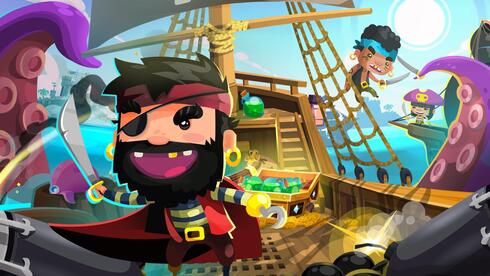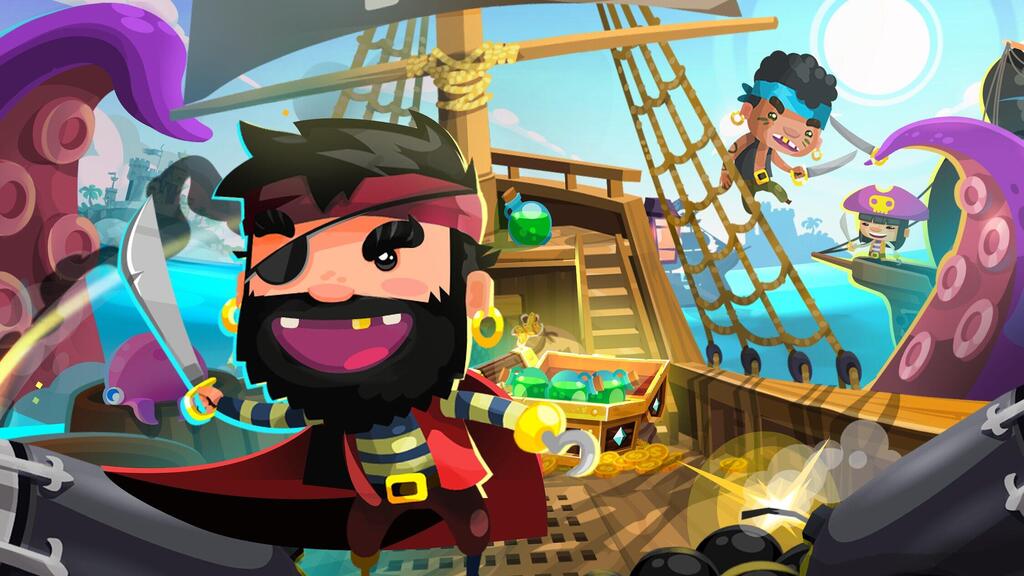
Game over: Playtika's Israeli studio shuts down for good
Jelly Button was one of Playtika's first acquisitions in the casual game genre, helping the company change direction from controversial social casino games. However, in the last round of layoffs in December, the company closed the studio permanently and fired most of its employees
Last December, Israeli-founded gaming giant Playtika announced that it was laying off 610 employees, accounting for 15% of its workforce.
Playtika's Israeli studio Jelly Button arguably suffered the biggest blow after being closed permanently. Playtika did not officially announce the studio's closure, but two sources with whom Calcalist spoke confirmed this. The Jelly Button website remains alive, for now. But not a single ad is currently listed on the job openings page.
Playtika purchased Jelly Button in 2017 for tens of millions of dollars - taking a first step in the direction of the casual games genre: these are games with a short playing time and simple rules, intended for the general public and not necessarily for devout gamers. The announcement of the studio's closure was sudden, but did not catch Jelly Button employees by surprise.
"The local gaming industry is small enough, so we knew about the layoffs even before the official announcement," said E, a former employee of Jelly Button, who requested to remain anonymous. He worked for three and a half years as a senior unity developer at Jelly Button. "There is a former executive at Playtika who now invests in the gaming sector. He leaked the layoffs to his portfolio companies and they started contacting us with the aim of recruiting us. That's how I found out about the layoffs a week and a half before the official announcement."
"It created a lot of unpleasant situations," E admitted. "I avoided talking to people at work. Little by little, people stopped corresponding on the company's Slack." He said that some of the employees found out about the layoffs during a lavish company party which featured Israeli rock star Noa Kirel. "There were people who heard about it for the first time at the party and immediately started crying. I avoided going there. We also had no one to ask. The middle level management also found out unofficially about the layoffs, because the senior director of the studio just wasn't in the office."
Finally, the announcement was made in the form of a video from the company's COO projected in the studio's kitchen: "He announced that Playtika had 'decided to remove the non-essential parts of our operations.' It was a wording that was not pleasant to hear."
Victor (not his real name), who also worked at Jelly Button for over a year as a unity developer, said: "I can put myself on the other side and understand why they shut us down. But from my small, egotistical place, it's really upsetting. We are connected to these games. It sucks that they will disappear. Jelly Button is an adventure for Playtika and probably at this stage, companies don't want to take on new adventures."
For several years after the purchase by Playtika, the studio did not release any new games. "The studio was losing money," admitted E. However, Jelly Button recently released a new casual game, "Merge Stories", which has already been downloaded millions of times. The studio also "soft launched" another game, "Dice Life". "Two games - one for global launch and one that was about to launch cost Playtika millions of dollars in marketing," explained Victor, who was one of the developers of "Dice Life". "Probably it would have been more profitable to cut them."
"Many people were surprised and said that the games were successful," said E. "We were sort of Playtika's growth division, where the company invested money to develop more IP (intellectual property). Over the years I also worked on many games that were canceled. There was a feeling that it was fine as long as we showed to the outside that we were working on games that were not social casino games.
"Playitika was forced to recognize that Jelly Button is a sunk cost," added E. "Playtika said, 'We are good at investing in games and helping them grow, but we are not able to support them for a long time."
Last month, Playtika announced a $25 million investment in the Turkish gaming company Ace Games. E is convinced that the move is a sign of things to come: "Playtika will change its strategy and become an external investor and publisher of games."
In recent months it was evident that Playtika tried to shake off its reputation as a social casino company. In August, the company announced that for the first time ever, most of its revenue came from casual games, which are seen as legitimate compared to the reputation of social casino games. However, E believes that Playtika's corporate culture prevented it from completing the transformation. "The company's management does not understand how to make a good casual game. They simply wanted to build a virtual store that has a game environment," he explained.














